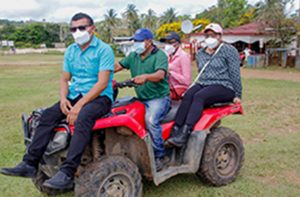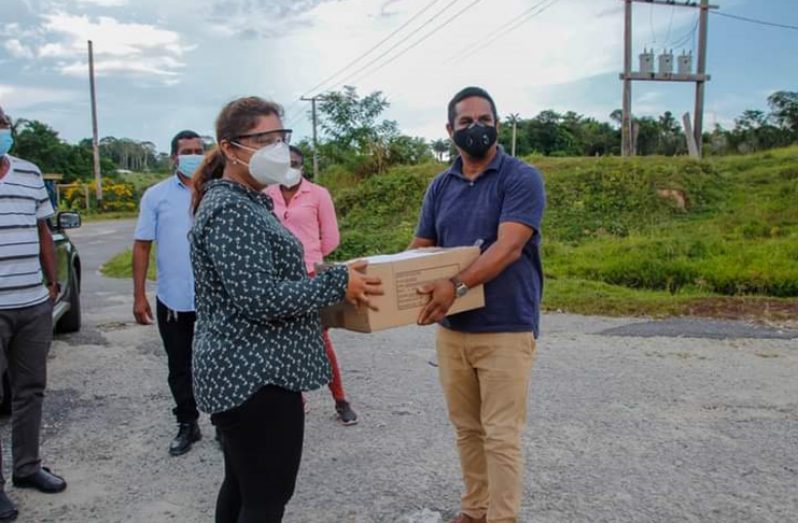– hinterland schools adapting to new learning environment during COVID-19 pandemic
By Naomi Parris
IMPROVING access to education, particularly in hinterland communities, remains a top priority for the government, even as the country continues to contend with the effects of the novel coronavirus (COVID-19) pandemic.
Recently, Education Minister Priya Manickchand visited a number of villages in the hinterland region, where she provided a months’ worth of learning material for children who are unable to access their learning material or Interact with their teachers virtually.
The minister, during her visits to several riverine communities said: “We have had to craft a plan to deliver education in various ways, because no one solution will suit or be suitable for every single student across the country.”
Due to the COVID-19 pandemic and the possibility of community spread, the Education Ministry was forced to close schools across the country to protect the country’s children and educators.
Television, radio and the Internet were primarily used to send and receive information between students, pupils and teachers. However, the minister noted that not everyone is fortunate to access their learning material via the Internet and other media sources, and this unfortunately is the reality for many who reside in the hinterland regions.
She added that teachers were advised to engage their students and pupils via WhatsApp, Google Classroom, Zoom and many other similar platforms. She further noted that the ministry also refashioned the Guyana Learning Channel to deliver timetabled instruction; however, many students who reside in the hinterland region are not able to have the luxury of Online schooling. Cognisant of this, she stated that the ministry has since been able to provide print material for those who cannot access the Internet, the Learning Channel or the radio.
‘BACK IN GEAR’

During her visit, the minister met with Marti DeSouza, District Education Officer of Mabaruma, who disclosed that engaging with students and pupils in Mabaruma and other villages in the region has been a challenge over the past few months.
“Region One has been one of the hardest hit in the hinterland if you’ve been following the media, and even now as we speak, we are the second highest just behind Region Four. Since the shut-down in March, it has been very challenging, I must say; school has been out, and no one was prepared,” DeSouza said, adding: “We have seen in Georgetown and the coastland that Online classes have resumed; the challenge continues to be in the hinterland, where we do not have access to Wi-Fi, and as such, there is nothing much that we can really do.”
Nevertheless, he noted that the Department of Education has “kicked back into gear” with the print material provided by the ministry.
Leola Fiedkou, a teacher from Baramita, added that the materials will now assist those children who were unable to access their learning material Online.
“These materials will benefit the children during the pandemic, because, like other regions, especially on the coastland, these children do not have access to the Internet, so these materials will be beneficial, because these children will get to go and do some work,” she said.
Meanwhile, Shondell Worrell, a teacher from Matthews Ridge, disclosed that while she has been able to reach a few of her pupils via the Internet, it took them some time to get used to the new learning environment.
“Due to the COVID-19, we have been having lots of challenges. Now the children are at home, teachers cannot meet with them face-to-face; we cannot get to do our discussions, give certain instructions as we would like,” she said.
Worrell added that she believes access to print material will be more effective, since pupils and students will no longer have to depend solely on the Internet for their learning material.





.jpg)








